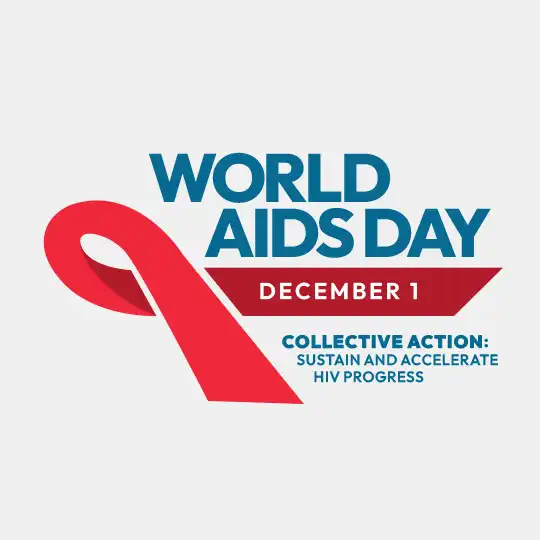Office of Inclusive Excellence Monthly Highlights - December
Welcome to december!
December brings the cold here in the Northern Hemisphere and sun in the Southern Hemisphere, but globally it is a time for reflection, celebration, as well as mourning for those that may not be with us to celebrate these holiday times. Below are the main international and nationally observed holidays and observances.
World AIDS Day (December 1)
World AIDS Day is a global occasion to unite in the fight against HIV/AIDS, show support for those living with HIV, and honor those who have lost their lives to the virus. It serves as a reminder of the ongoing need for equitable access to testing, treatment, and care while fostering awareness to eliminate stigma and discrimination.International Day for People with Disabilities (December 3)
This day celebrates the contributions of individuals with disabilities and promotes the importance of inclusion and accessibility. It is an opportunity to advance efforts toward a world where all people, regardless of ability, can thrive and participate fully in every aspect of society.International Human Rights Day (December 10)
Observed on the anniversary of the Universal Declaration of Human Rights, this day reaffirms the inalienable rights everyone is entitled to, regardless of race, gender, nationality, or status. It is a call to action to uphold equality, dignity, and justice, fostering a world that values and protects the rights of all.Yule (December 21)
Yule, celebrated on the Winter Solstice, is a tradition with roots in ancient pagan cultures, marking the longest night of the year and the return of the sun. It is a time of reflection, renewal, and celebration of nature’s cycles, observed with rituals, feasting, and gift-giving.Christmas (December 25)
Christmas is a Christian holiday commemorating the birth of Jesus Christ, celebrated worldwide with diverse traditions. For many, it is also a cultural occasion centered on family gatherings, generosity, and spreading joy and goodwill.Start of Hanukkah (December 26)
Hanukkah, also known as the Festival of Lights, begins at sundown and lasts for eight nights. This Jewish holiday commemorates the rededication of the Second Temple and the miracle of the oil that burned for eight days. It is celebrated with menorah lighting, prayers, traditional foods, and family gatherings.- Start of Kwanzaa (December 26)
Kwanzaa is a week-long celebration honoring African heritage, culture, and community. Rooted in the Seven Principles (Nguzo Saba), Kwanzaa emphasizes unity, self-determination, and cooperative economics. It is celebrated with storytelling, music, art, and communal meals.
What's Happening Around Campus
in the news

National Academy of Social Insurance Names Alison Barkoff Senior Fellow
New fellowship advances work on long-term care, disability, and aging policy
January 27, 2026
New fellowship advances work on long-term care, disability, and aging policy

New Issue Brief Explores Medicaid Managed Care for New Mothers
January 27, 2026

Washington Performing Arts and George Washington University Forge Pioneering Partnership to Launch “The NeuroArts Collective”
The collaboration merges performing arts and public health to enhance well-being in senior communities
January 12, 2026
Washington Performing Arts and the George Washington University’s Milken Institute School of Public Health today announced the launch of The NeuroArts Collective, a groundbreaking partnership bringing together the performing arts and public health to advance brain health and social well-being among older adults.








